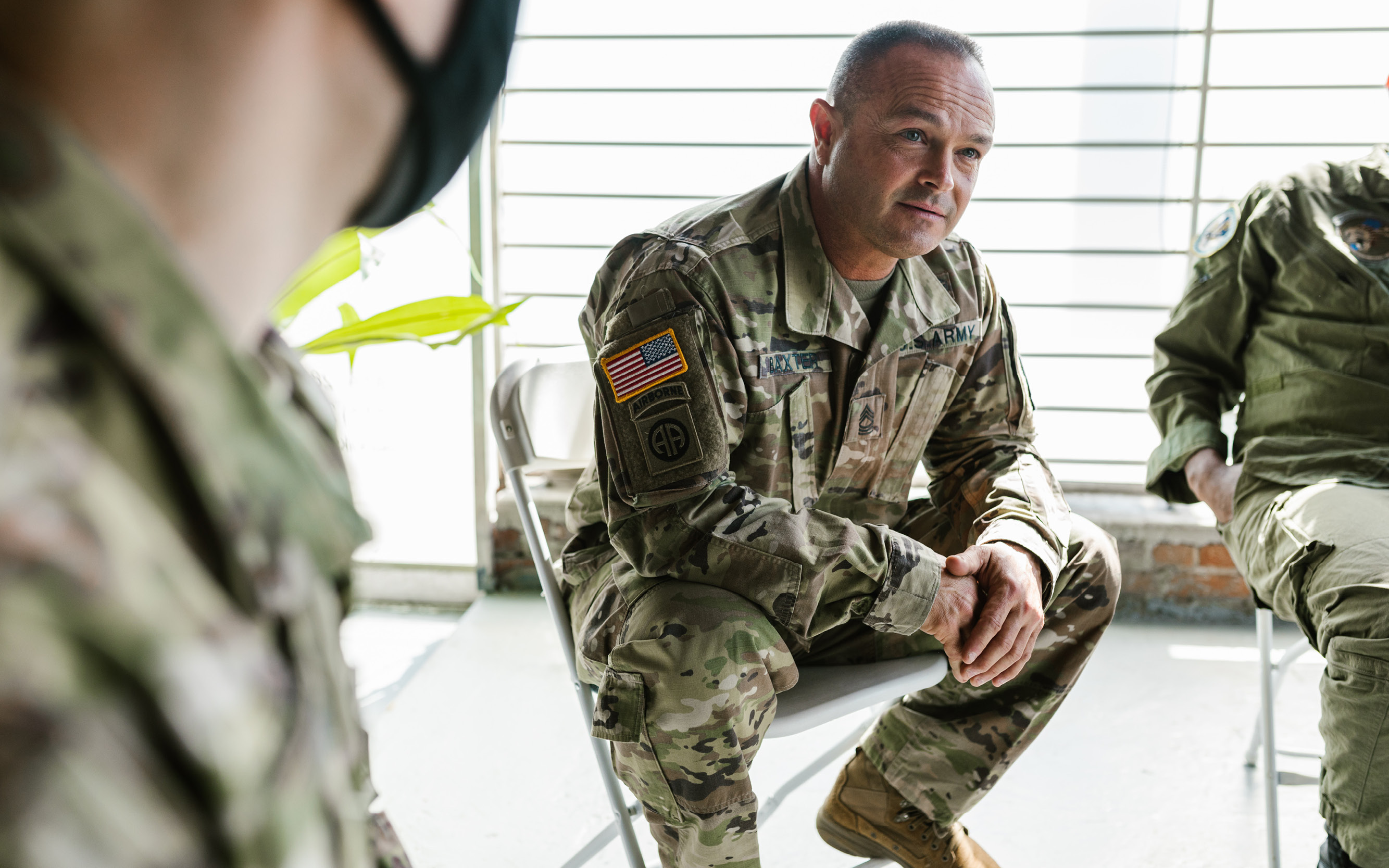Returning home after a deployment can be a jarring experience for many veterans. Suffering from PTSD can create or exacerbate conditions that foster addiction. Unfortunately for many of our soldiers, PTSD and addiction are formidable challenges that are often interlinked. These struggles can upset a veterans mental and emotional well-being, cause rifts in relationships, negatively affect physical health and lead to increased rates of suicide. In this article, we will delve into the complex relationship between PTSD and addiction and provide guidance on how to embark on a healing journey of recovery.
Understanding the Link
According to the National Institute on Drug Abuse, “veterans with SUDs [substance use disorders] are 3-4 times more likely to receive a PTSD or depression diagnosis.” Active military duty involves putting oneself into extremely risky situations and experiencing things that most civilians will never see or do. This poses a unique challenge when it comes to reintegrating into normal society. Trauma, sleep disturbances, traumatic brain injuries, pain issues, and reintegration stresses create conditions ripe for substance abuse and mental health challenges. While many soldiers will turn to drink and drugs to help with their problems, the combination of substance abuse and PTSD works to only worsen the conditions. On top of this, the military has a zero tolerance policy towards SUD that discourages soldiers from seeking help. “Half of military personnel have reported that they believe seeking help for mental health issues would negatively affect their military career.”
Studies being conducted are showing a positive correlation between PTSD/substance use disorder and its effects on the brain’s stress and reward systems. The brain chemistry of these patients has been altered making quitting drugs and alcohol more challenging than someone with an unaltered brain. Understanding the unique challenges posed to veterans is crucial in finding an appropriate treatment facility that can adequately treat both symptoms.
Healing from the Inside Out
Treatment programs that place an emphasis on helping veterans develop healthy coping mechanisms, process trauma, address their substance abuse and work on reintegration strategies are crucial to the healing process. These variables should all be considered when seeking treatment for a soldier struggling with PTSD and addiction. Evidence based therapies such like cognitive behavioral therapy (CBT), Seeking Safety, and eye-movement desensitization and reprocessing (EMDR) have proven effective in treating both PTSD and addiction.
Group therapy and peer support also play a vital role in the recovery process and allow for veterans to connect with other soldiers who have experienced the same things. This allows for mutual understanding and camaraderie which can help to promote healing and break the cycle of isolation.
Additionally, holistic approaches have proven effective as well. Therapies such as yoga, mindfulness meditation, equine therapy, and others can serve as a valuable complement to more traditional approaches. These methods seek to heal the body and spirit along with the mind and can provide a different perspective to recovery than the clinical side.
Being a soldier in the midst of PTSD and substance use disorder can feel like a lonely and hopeless place to be. There is community, hope, and healing available outside of the VA. Treatment facilities like Owl’s Nest Recovery offer a comprehensive veterans program that acknowledges the connection between PTSD, addiction, and the experiences of a soldier. By offering the necessary resources and unwavering support, you can heal from the inside out. If you or a loved one is ready to rediscover life, hope, and a renewed sense of purpose, call our admissions team today. We are ready to be of service to you.

Comments